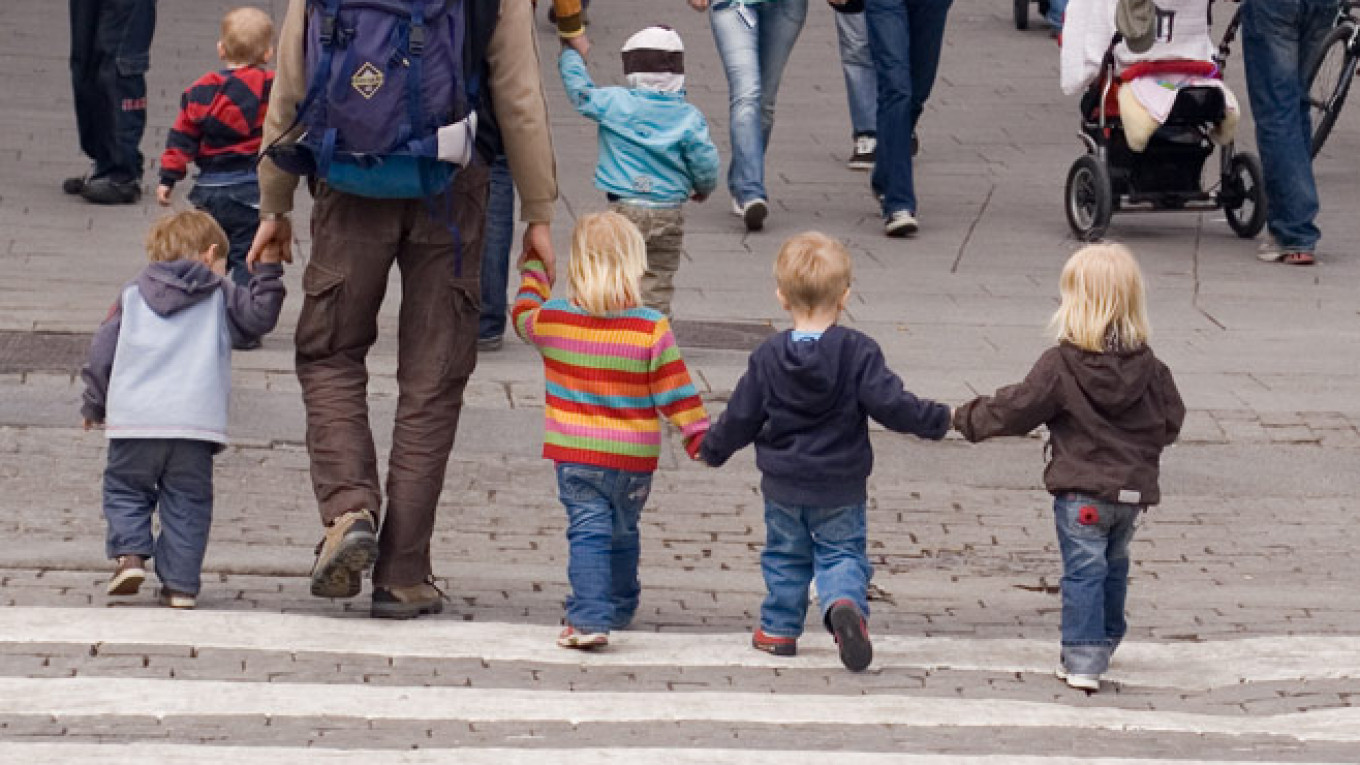About half of all Russian orphans adopted by foreigners in 2013 were taken in by Italian families, according to a report published by Russia's Supreme Court.
The report, published Wednesday, revealed that 560 Russian kids were adopted by Italians last year.
Based on the statistics, Italy was the country that took in the largest number of Russian orphans in 2013, trailed by Spain in second place and France in third.
The report provided the first analysis of adoption trends since the enactment of a controversial law on Jan. 1, 2013 banning the adoption of Russian children by American families.
The ban appears to have put a major dent in the number of foreign adoptions overall, which the report revealed have declined by 48 percent decline since 2012. In comparison with 2011, the number of adoptions in 2013 fell by 59 percent.
The U.S. previously dominated Russia's foreign adoption scene, having taken in more than 60,000 Russian kids over the course of two decades.
The ban — called the Dima Yakovlev Act by its supporters and the Anti-Magnitsky Act by its critics — was imposed after a series of child abuse cases involving Russian children in the U.S. came to light.
The law was named after a child at the center of one such case, Dmitry Yakovlev, who died of heat stroke in 2008 after being left unattended in a hot car for nine hours.
But the ban also came after the U.S. passed legislation blacklisting several Russian officials accused of human rights violations, leading many to accuse Russian officials of having used vulnerable children as a political weapon.
In February, Prime Minister Dmitry Medvedev signed a decree restricting adoptions by citizens of countries where same-sex marriage is legal, a move that is expected to bring about a further decline in foreign adoptions this year.
More than a dozen countries recognize gay marriage, including the Netherlands, France, Belgium, Spain, Canada, Norway, Sweden, New Zealand and parts of the U.S. and Britain.
See also:
A Message from The Moscow Times:
Dear readers,
We are facing unprecedented challenges. Russia's Prosecutor General's Office has designated The Moscow Times as an "undesirable" organization, criminalizing our work and putting our staff at risk of prosecution. This follows our earlier unjust labeling as a "foreign agent."
These actions are direct attempts to silence independent journalism in Russia. The authorities claim our work "discredits the decisions of the Russian leadership." We see things differently: we strive to provide accurate, unbiased reporting on Russia.
We, the journalists of The Moscow Times, refuse to be silenced. But to continue our work, we need your help.
Your support, no matter how small, makes a world of difference. If you can, please support us monthly starting from just $2. It's quick to set up, and every contribution makes a significant impact.
By supporting The Moscow Times, you're defending open, independent journalism in the face of repression. Thank you for standing with us.
Remind me later.






